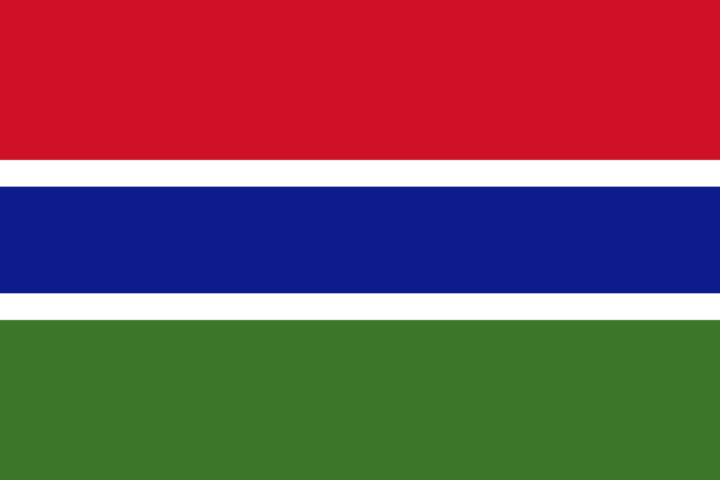The Gambia presidential election of 2016 was held on the 1 december 2016. In a surprise result, opposition candidate Adama Barrow defeated long-term incumbent Yahya Jammeh. The election marks the first change of presidency in the Gambia since a military coup in 1994, and the first transfer of power by popular election since independence from Britain in 1965.
Before the final results were announced, Jammeh graciously conceded defeat by calling the Independent Electoral Commission (IEC) chairman, shocking a populace that had expected him to retain power simply because of his dictorship.
The final official results showed Adama Barrow winning 43.3% plurarity, achieving a 3.7% margin of victory of Jammeh’s 39.6% with a third candidate, Mamma Kandeh, receiving 17.1% of the votes.
Following the election 19 opposition’s prisoners were released, including Ousainou Darboe, the leader of Barrow’s United Democratic Party (UDP). There was widespread celebration of the result by the opposition, along with some caution over whether the transition would proceed without incident.
The newly elected President Adama Barrow is leading an opposition coalition of seven parties-the largest opposition alliance since independence. He runs his own property company and used to be a security guard at an Argos catalogue store on London’s Holloway Road during his time of studies.
Mr Barrow now has his chance to tackle the poverty and unemployment which drives so many young Gambians to join the Mediterranean migrant trail every year.
A few days after the announcement of the newly elected president, the IEC Chairman Alhagie Momour Njie made some rectifications to the votes counted. The error occurred at the Basse administrative area.
Mr Njie further states that the error corrected had not change the status quo, Mr Adama Barrow is still the elected President.
On 9 December 2016, Jammeh announced that he has rejected the results of the election and called for a new election. The announcement was made on a state television station and throws the future of the Gambia into doubt after the election result ended Jammeh’s 22-year rule as a dictator.
“After a thorough investigation, I have decided to reject the outcome of the recent election. I lament serious and unacceptable abnormalities which have reportedly transpired during the electoral process,” Jammeh said.
“I recommend fresh and transparent elections which will be officiated by a god-fearing and Independent Electoral Commission,” he said.
Jammeh’s defeat prompted a wild celebration especially the youths including myself. His regime comprised detaining, torturing and killing opponents.
The University of the Gambia should commence examinations by next week, but through students’ UTG mails lectures and examinations have being boycotted until things of politics have return to normal.
President-elect Adama Barrow with his coalition team urge all Gambians to stay calm and they will work out the problem, and they assured the Gambians that things will be in their hands soonest.
Today early morning Radio France International (RFI) reported that ECOWAS wanted to send a representative to dialogue with Jammeh but she was denied entry to the Gambia. Mrs Johnson the President of Liberia should have been the representative.
Mr Barrow is set to take over in late January following a transition period.
Senegal, a country that surrounds the Gambia on three sides on Saturday called for an emergency meeting of the UN security council after Gambia’s president Yahya Jammeh announced he was rejecting the results of the election.
Senegal’s Foreign Minister, Mankeur Ndaiye, speaking on television station TFM, also asked Jammeh to respect the election verdict and “solemnly” warned him not to harm Senegal’s interest or its citizens in the West African country.
Mamut Jagne, Energia per i Diritti Umani Gambia










